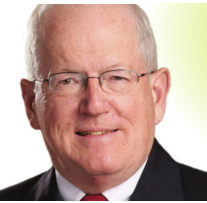Plus the passing of two other notable Granite Staters
The editor of this column thinks it is becoming the obituary section of NH Business Review. However, when notable figures pass from the scene, they are worth noting, as they have contributed to the life and character of the state. This column takes note of three such significant men, all of whose funerals or memorial services occurred during the week of April 10.
Norman Stahl, retired First Circuit Court of Appeals judge, died on April 8. A Manchester native, he was the son of a noted dentist, Samuel Stahl and brother of contributing citizens, including Dr. David Stahl, who followed his father into dental practice and was a prominent supporter of cultural and world affairs charities.
After high school, Norman Stahl attended Tufts and Harvard Law School, did a judicial clerkship, and returned to Manchester to practice law at the firm ultimately called Devine, Millimet, Stahl & Branch. He was instrumental in the growth of that firm, moving from a Victorian house on Elm Street to the corner of Elm and Webster streets, and then to the former downtown post office building which houses the firm today. Reportedly, he scrutinized the plans and construction in each move.
As an attorney, Stahl became prominent as a commercial lawyer and also was involved in Republican politics, both at the state and national levels. He had a very successful practice, lived in Bedford, liked interesting cars and would have been a noted success if he had completed his career as an attorney.
However, at about age 60, at the behest of his friend, U.S. Sen. Warren B. Rudman, he accepted nomination to the U.S. District Court in Concord. He served there for a couple of years, and then was nominated for the First Circuit Court of Appeals, succeeding David H. Souter, after Souter was appointed to the U.S. Supreme Court.
At his memorial service, Stahl was eulogized by District Court Chief Judge Landya McCafferty, who clerked for Stahl, New Hampshire Chief Justice Gordon MacDonald, who also clerked for him, a prominent client who knew him for 65 years, and former New Hampshire Chief Justice John Broderick, who was his partner at the Devine firm for many years.
Each had warm feelings for Judge Stahl, and also noted his interest in them and their families, his intense concern for their well-being, and pride in their accomplishments.
John C. Miles was raised in a working class family in the Midwest, worked his way through school, went into the military and then succeeded in business. After becoming a consultant, he came to the attention of Edward Shapiro, then president of New Hampshire College, in the mid-1980s, when the school faced financial headwinds.
When Attorney William S. Green was named chancellor of NHC, he asked Miles to work full time as financial vice president. Miles worked with Green, this writer and the board of trustees to put it on a firm financial footing, which after Richard Gustafson was hired as president of NHC, became Southern New Hampshire University.
He continued to work after Paul LeBlanc became head of SNHU. After retiring, he worked for a time at Chester College of New England.
Miles was very active in religious life everywhere he lived, and was a collector of Corvettes, of which he was very proud. His contributions to New Hampshire education, in helping to preserve and grow SNHU, were significant and worthy of note.
The Rev. Donald Blume, a Lutheran minister who came to New Hampshire to be the head chaplain at Elliot Hospital in Manchester passed away April 6, well into his 80s.
What made Don Blume significant to the state was his passion for those of different denominations working together. While he was a minister in the Evangelical Lutheran Church in America, and member of Gethsemane Lutheran Church in Manchester, he also served as interim pastor of other churches in various denominations. He also served as representative to the social service arm of the ELCA, now called Ascentria, which brought him into close contact with the Episcopal Diocese of New Hampshire, and its bishops and clergy.
Don Blume’s memorial service was attended by clergy from around New England, and the Episcopal bishop asked to deliver the sermon. At a time when church membership seems to be declining, his example and hope for the future was a tonic those he touched needed. His smile, optimism, faith and warmth were authentic.
Brad Cook is a Manchester attorney. The views expressed in this column are his own. He can be reached at bradfordcook01@gmail.com